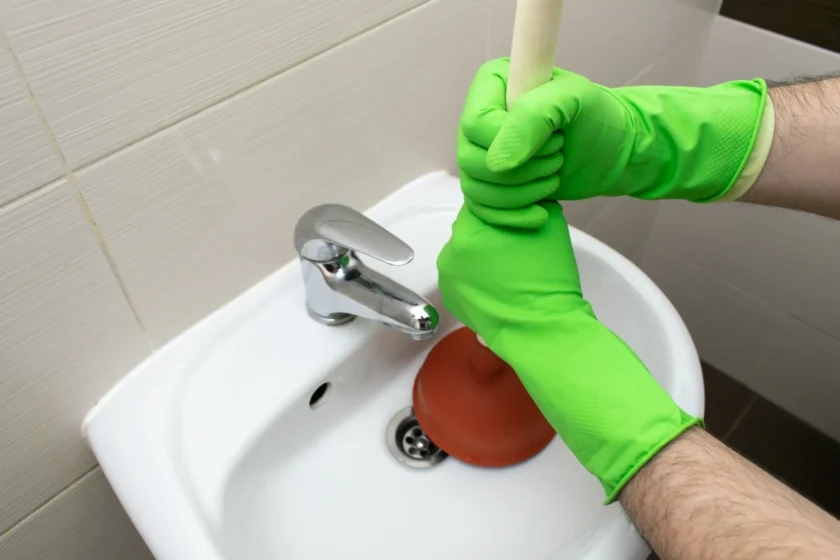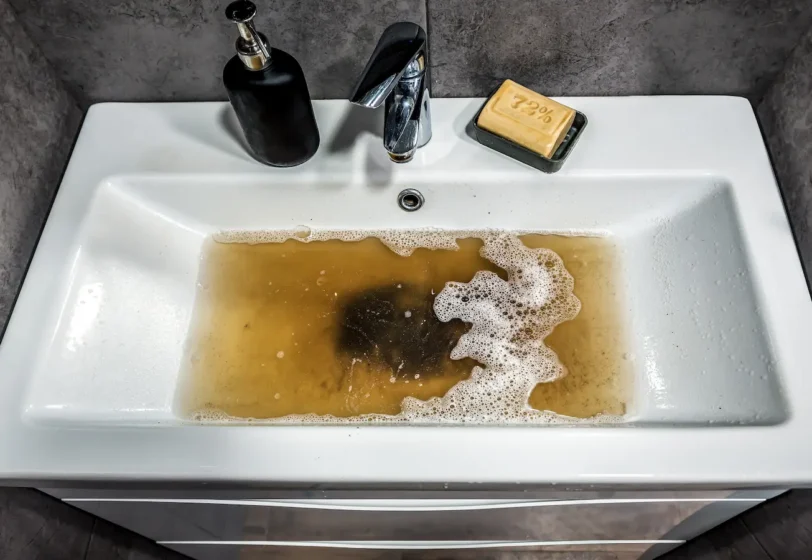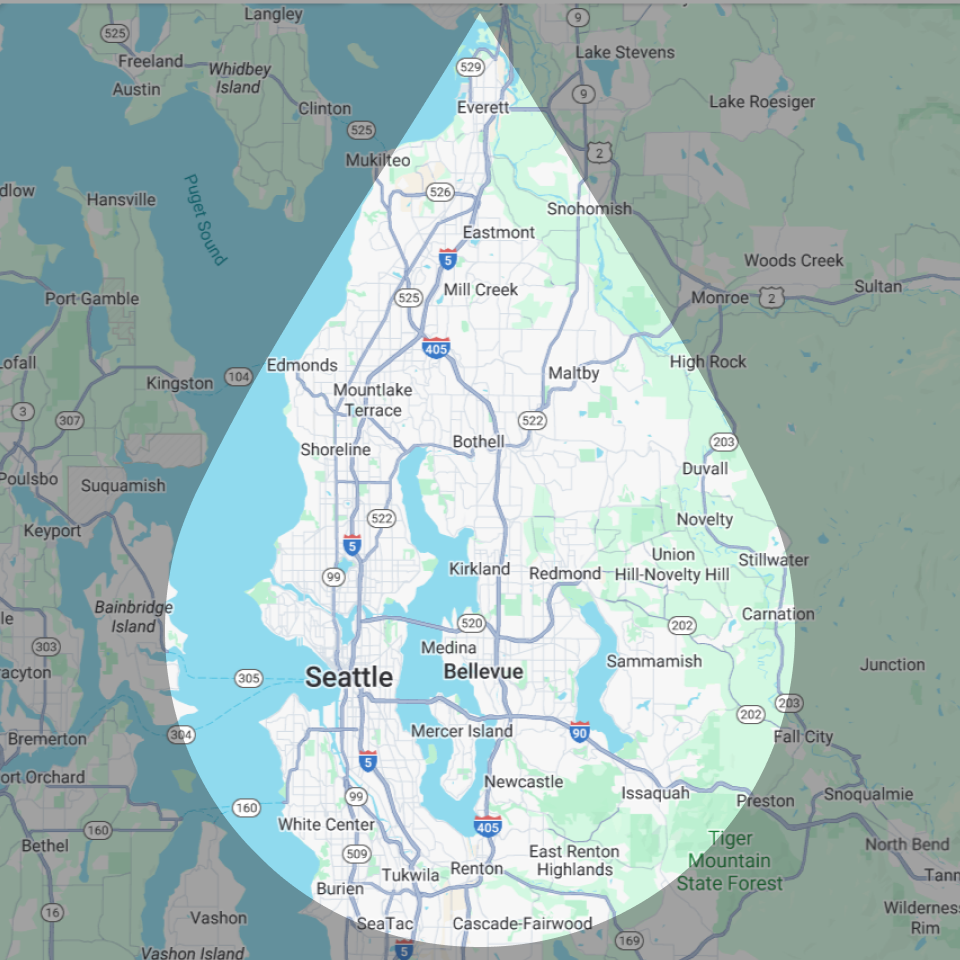A slow bathroom sink drain can quickly go from being an inconvenience to a daily frustration. Many homeowners first wonder, “Why is my bathroom sink not draining?” — assuming it’s just a simple clog, but the truth generally holds several possible sources. Each source requires a different method, but the best part is that most instances are simple to repair without a professional. Water can flow freely again with little effort if the proper technique is used.
Common Reasons Your Bathroom Sink Drains Slowly
Hair, Toothpaste, and Soap Buildup in the Drain
The clumps of hair, combined with bits of toothpaste, soap, and everything in between, will eventually build up and harden in the drainpipe. Wastewater finds it more difficult to pass through these sticky obstructions because they narrow the water channel. In homes with hard water, mineral deposits join the mix, making the obstruction even more difficult to remove — a common reason why bathroom sink drains slowly.
Issues With the Pop-Up Stopper Assembly
The pop-up stopper that helps hold water in the basin is also a magnet for grime. Gunk often builds up around the pivot rod and underneath the stopper itself. Even if everything looks clear from above, this hidden buildup can still be the cause of your slow bathroom sink drain.
A Partially Clogged P-Trap
The curved P-trap beneath your sink is designed to catch debris and block sewer gases. Unfortunately, it can also accumulate gunk. Hair mats, soap sludge, or small dropped items can reduce the trap’s capacity, slowing water movement.
Slow Bathroom Sink Drain but No Clog? It Could Be Something Else
Sometimes, the problem isn’t a physical blockage. If your bathroom sink drains slowly but is not clogged, the cause may be inadequate venting of your overall plumbing system that inhibits drainage by restricting air passage through the pipes. Or corrosion and scaling inside older pipes may be narrowing water flow, mimicking clog symptoms.

How to Clear a Slow Bathroom Sink Drain at Home
Pour Boiling Water to Dissolve Grease
The easiest way to start clearing a slow bathroom sink drain issues is often with hot water. Just slowly pour a kettle of boiling water down the drain to help dissolve soap or grease buildup. This is especially effective for mild obstructions.
Use a Vinegar and Baking Soda Home Remedy
Mixing ½ cup baking soda with 1 cup vinegar is a natural home remedy for a bathroom sink that drains slowly. The fizzing breaks up the buildup, and a hot water flush removes it.
Try a Drain Snake or Zip-It Tool to Remove Debris
If your clog is packed with hair, a drain snake or an inexpensive Zip-It tool can pull out the tangled mess. They work best when you think the blockage is close to the drain’s opening.
Clean the Stopper and P-Trap Thoroughly
If gunk in the stopper assembly or P-trap is slowing things down, disassemble them and clean them thoroughly. Wear rubber gloves, put a bucket under the trap to contain water, and drain out sludge before reassembly.
Avoid Harsh Chemicals – Choose Safe Cleaning Methods
While chemical cleaners are effective, they will degrade metal pipes and destroy finishes. Use mechanical devices or opt for natural methods with safer long-term cleaning results.
Please Click to Call or Fill out our Contact Form Here
Signs It’s Time to Call a Plumber
If you’ve tried multiple solutions and still can’t fix slow bathroom sink drain issues, professional help may be needed. Call a plumber if:
- Several fixtures in your home drain slowly at once.
- Water backs up into the sink after draining.
- You detect unpleasant sewer odors.
- The problem returns soon after cleaning.
How to Prevent Future Bathroom Sink Clogs
Install a Drain Screen to Catch Hair and Debris
A small drain screen or guard is one of the easiest ways to keep your sink running smoothly. It just fits right over the drain and catches the clumps of toothpaste, hair and little things before they enter the pipes.
Perform Routine Cleaning With Natural Solutions
Pour vinegar after baking soda once a month to prevent buildup in the first place. Finish off with a flush of boiling water to have everything clean and running efficiently.
Flush Your Drains With Hot Water Weekly
A hot water flush once a week stops soap and grease from hardening inside the pipes and allows the bathroom sink drain to run faster in the long term.
Not all slow-moving drains in the bathroom sink are serious plumbing issues. With a little detective work, you’re likely going to figure out why the drain keeps clogging and apply the correct solution — whether it’s unclogging the stopper, cleaning the P-trap, or trying a do-it-yourself repair. But if the problem persists, it’s worth hiring a professional to get your plumbing in top shape and your daily life on schedule.
Keep water moving the way it should



